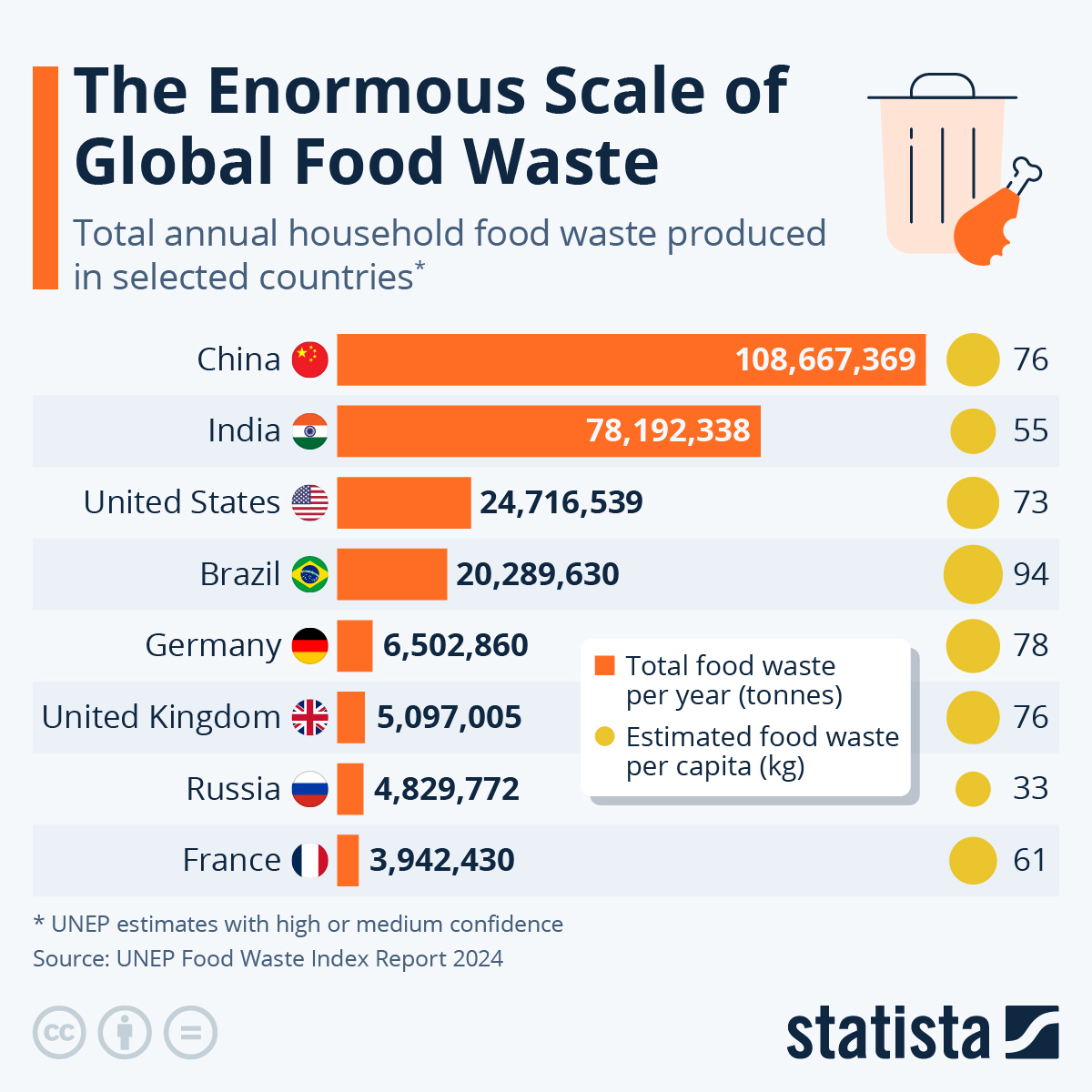this post was submitted on 24 Sep 2024
57 points (74.4% liked)
Data is Beautiful
1183 readers
5 users here now
Be respectful
founded 5 months ago
MODERATORS
you are viewing a single comment's thread
view the rest of the comments
view the rest of the comments

Wait, so they're including inedible parts like husks, peels, etc. that can't actually be used for food? So this is more a combination of food waste and food byproducts, then. It might say more about the types of foods that these countries prefer than how wasteful there are if they consume more foods with inedible byproducts.
The motivation behind doing it was that different cultures treat what is food differently as is exemplified in their example of chicken feet. However, that also raises big questions on the efficacy of this data since houses which use raw fruits and vegetables are probably likely to have higher food waste by this definition since most people aren't buying bone-in meat. But since a big objective of their report was tackling greenhouse gas generation from said food waste, I guess it makes sense in that context? I tried to figure out the exact methodology by which they estimate their numbers but I wasn't able to find it.